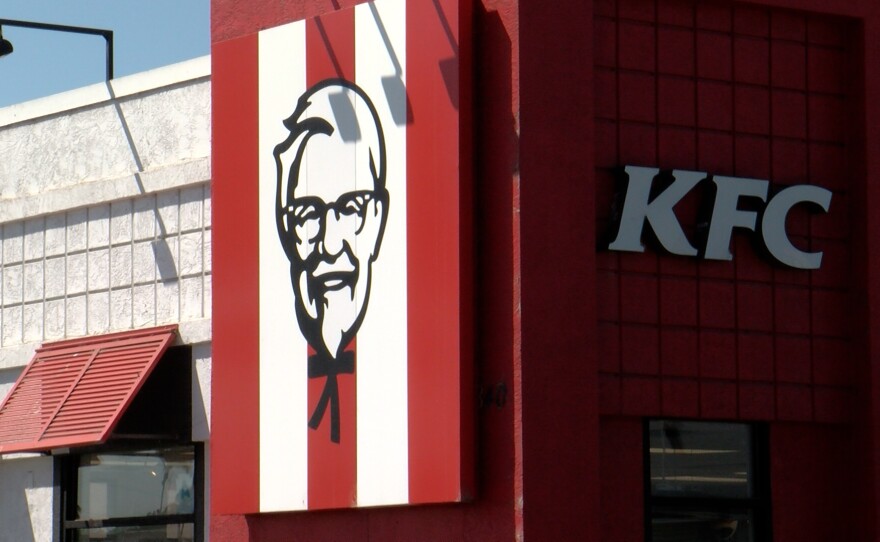Gov. Gavin Newsom made Labor Day 2022 one to remember for California’s fast-food workers by signing into law a bill that will give them more power to negotiate wage increases and improve working conditions.
The bill, known as AB 257, “empowers our workers, particularly in that sector, giving them more voice, giving them more choice, creating a new council,” Newsom said in a video message posted on Twitter Monday.
The council Newsom is referring to is a statewide fast-food council, which will allow workers, employers and government officials to negotiate industry standards. The law will give the council power to establish a new minimum wage for the fast food industry, but caps it at $22 an hour. It also requires annual cost-of-living adjustments starting in 2024.
“I am proud, on Labor Day, to sign that bill and enshrine it in law,” Newsom said.
The law, which is due to take effect in January 2023, is the first in the country that creates what is known as sectoral bargaining in the fast-food industry. This means workers and employers negotiate on an industrywide basis instead of negotiating through individual companies and locations.
For Karina Zuniga, a local fast-food worker, Monday marked a victory in a long battle.
“I am very happy about this, we will have a seat at the table,” said Karina Zuniga. “We have been fighting for this.”
Zuniga, an immigrant from Mexico, has worked for KFC in National City for the last five years. She became involved in the labor movement when she found out her manager was not giving her a 10-minute break.
California employment law requires employers to give hourly employees one 10-minute rest break for every four hours of work.
“I didn’t know about it,” she said during an interview with KPBS in Spanish. “I was new to the United States, and this was my first job.”
Zuniga has also fought against wage theft and unsafe working conditions — like spilt boiling-hot oil on the floor that she says make the kitchen slippery and unsafe.

Former San Diego Assemblywoman Lorena Gonzalez Fletcher first introduced the bill. She is now a leader at the California Labor Federation.
“I think it’s really exciting,” Gonzalez said. “It’s a whole new level of bargaining, it’s a whole new level of coming up with regulations and I think it’s something that could take off; not just for fast-food workers but other industries as well.”
Critics of the bill say it will make it much harder and more expensive to operate fast-food restaurants in California — and those costs will be passed on to consumers.
Sean Redmond, vice president of labor policy for the U.S. Chamber of Commerce called AB 257 a “radical” bill in an op-ed published on the chamber’s website.
“In essence, AB 257 is a proposal to micro-manage the fast-food industry with unelected bureaucrats,” he wrote.
The California Restaurant Association accused Newsom of turning his back on small businesses.
“By signing AB 257 into law, Governor Newsom has not leveled the playing field but instead targeted one slice of California’s small businesses and consumers who rely on counter service restaurants to feed their families,” the association said in a statement.
San Diegans having lunch at fast-food restaurants in National City supported the idea of raising wages — even if it means the price of a cheeseburger could increase.
National City resident Andrea Vargas said consumers will still have other options.
“I don’t think it would hurt much because, like I said, fast food isn't a necessity,” Vargas said. “So they would be better off buying actual groceries.”
Chula Vista resident Carlos Alfaro has a sister who works for a Chipotle.
“It’s a tough industry where the pay is kind of low,” Alfaro said. “So yes, they do deserve at least a couple of bucks more than the minimum wage or whatever they’re paid.”
Daniel Enemark, chief economist for the San Diego Workforce Partnership said the biggest criticism of minimum-wage increases is that they cause job losses because businesses can’t afford to pay as many workers.
However, Enemark said, research shows that is not historically true.
“A whole literature has provided overwhelming evidence that an increase in minimum wage doesn’t reduce employment,” he said.
Enemark went on to say that the biggest impact of AB 257 might be how it changes how employees and companies bargain with each other.
“It’s not an unmitigated positive — it does seem strange for an unelected board to set prices when this is probably something politicians should take direct responsibility for,” he said. “But sectoral bargaining is a big departure from the typical American approach to labor negotiations.”





